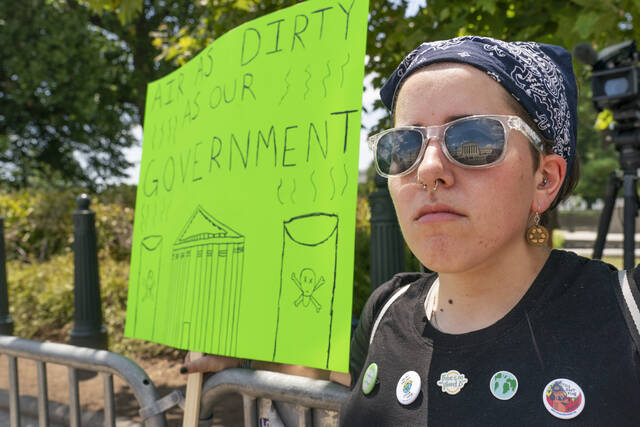The Supreme Court’s decision in West Virginia vs. EPA is a major setback and hobbles the United States Environmental Protection Agency’s (EPA) ability to regulate the pollution that causes climate change, but it doesn’t stop Pennsylvania from taking necessary steps here at home.
The court’s ruling may have far-reaching consequences and is exactly the opposite of what is needed as the climate crisis continues to accelerate unabated. The court has created yet another obstacle for the United States and has left us relying on a Congress that has shown little appetite to seriously address climate change.
It’s impossible to believe that inaction wasn’t their intent. In spite of the fact that Congress gave the EPA broad authority to regulate air pollution when it passed the Clean Air Act in the 1970s, and in spite of their decades of success addressing complex issues like acid rain and ozone smog, the court relied on a brand new doctrine they recently discovered — the so-called “major question doctrine” — to say that EPA can’t act unless Congress gives them even more authority.
Unfortunately, Pennsylvania isn’t immune to these same forces of obstruction and delay. Our legislators have tried time and again to strip Gov. Tom Wolf’s existing authority under Pennsylvania law to participate in the Regional Greenhouse Gas Initiative, also known as RGGI — a cap-and-invest program that would cut power plant pollution and invest in programs to clean our air.
Since Wolf issued an executive order to begin the process of working with RGGI in 2019, lawmakers in Harrisburg have done everything in their power to stop the final rule from getting across the finish line. After failing to secure the constitutionally required veto-proof majority, they have resorted to litigation to impose their will on the people of Pennsylvania. In spite of a majority of our citizens supporting climate action, the Legislature is attempting to strip power from the executive branch to enforce existing environmental regulations and to address carbon emissions.
They say they want to call the shots, but similar to Congress, our state General Assembly has shown no interest in actually protecting the public from the dangerous pollution causing climate change. Instead, it only seeks to take power away from other branches of government that have spurned the General Assembly’s own inaction and have dared to act in the best interests of our residents and our planet.
Opponents of climate action don’t have a leg to stand on. Pennsylvania’s Air Pollution Control Act gives clear authority for the Department of Environmental protection to regulate air pollution, such as carbon dioxide. And more importantly, Pennsylvania’s Constitution clearly grants guaranteed rights to clean air for every resident. The decision handed down by the Supreme Court on Thursday does not change these rights and it does not change Pennsylvania’s authority to regulate greenhouse gasses.
That’s very good news for Pennsylvanians, if only because participation in a program like RGGI would reduce carbon pollution from Pennsylvania’s power plants by up to 227 million tons by 2030, according to the Department of Environmental Protection, as well as add $2 billion to our gross domestic product and 30,000 jobs to our economy.
The impact that RGGI will have on the health, safety and welfare of our residents, as well as our climate and environment, cannot be overstated. Simply put, RGGI will save lives, create jobs and lower Pennsylvania’s carbon footprint at a time when we need it most. It is a critical component to reach our goal of net-zero carbon emissions by 2050.
With the decision handed down in West Virginia vs. EPA, the court ruled that the EPA — and by extension, the executive branch — does not have the power to regulate carbon dioxide emissions from power plants without authorization from Congress.
Thankfully, our commonwealth has stringent protections in place to ensure residents here can breathe clean air, and we don’t have to fully rely on the General Assembly or Congress to act in our best interests.
Rob Altenburg is the senior director for energy and climate at PennFuture, a statewide environmental advocacy organization.








